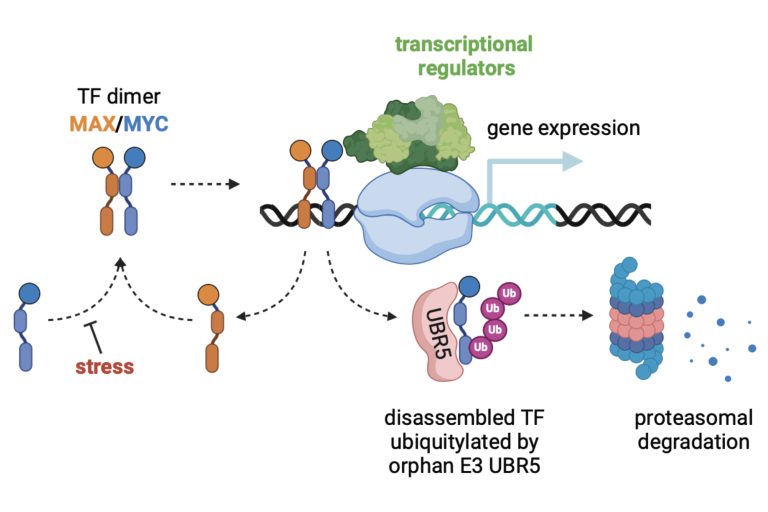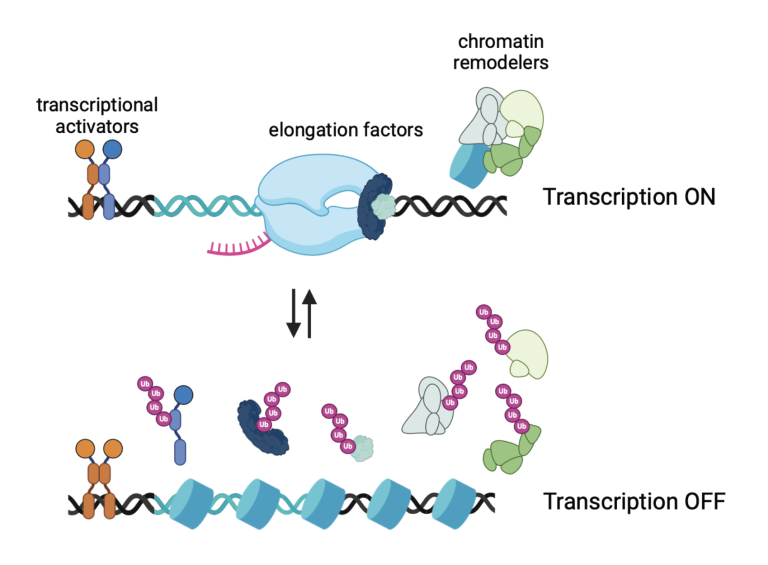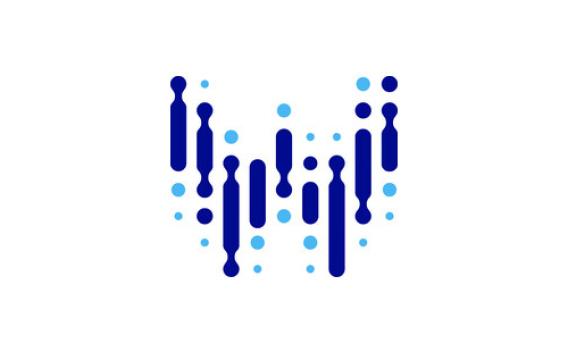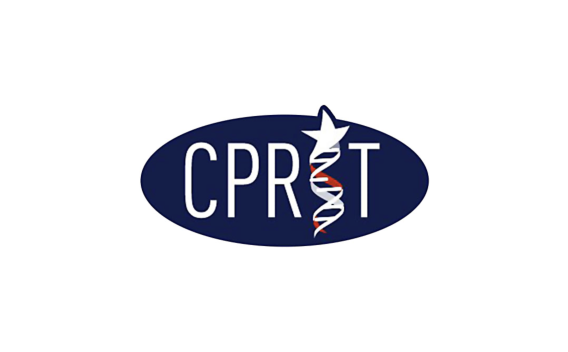What is ubiquitin?
Ubiquitin is a small eukaryotic protein that is attached to aberrant proteins and promotes their degradation as a form of protein quality control. Ubiquitin is first bound by a ubiquitin activating enzyme (E1) in an ATP-dependent manner and transferred to a ubiquitin conjugating enzyme, or E2. The ubiquitin molecule is then covalently attached to its substrate through the action of an E3 ubiquitin ligase, which facilitates the transfer of ubiquitin from E2 to target protein. Additional ubiquitins can be added onto the first, forming a polyubiquitin chain. Polyubiquitylated substrates are directed to the proteasome, a large cellular protease, that degrades the substrate. Ubiquitin chains can be removed from substrates by deubiquitylase enzymes (DUBs), thus altering their fate.

Ubiquitin-mediated orphan quality control sustains gene expression
Transcription factors are synthesized, assembled into a complex with binding partners, and help recruit cofactors to promote gene expression. Upon dissociation from DNA, these complexes are disassembled into individual subunits. Some of these "orphan" subunits are recognized as aberrant proteins by quality control E3 ubiquitin ligases (such as UBR5), and rapidly degraded to render complex disassembly irreversible. Remaining stable subunits can be reused in subsequent cycles of complex formation, use and disassembly. Thus, continuous turnover is necessary to remove "spent" transcription factors and sustain gene expression.


Besides dimeric transcription factors, UBR5 also target subunits of elongation complexes and chromatin remodelers. Given that humans possess roughly 1,600 transcription factors alone, what other orphan E3 ubiquitin ligases might be involved in clearing chromatin to prepare for subsequent reinitiation? Moreover, how do cells regulate this process under different environmental conditions? Finally, can we harness the activity of orphan protein E3 ligases for therapeutic benefit?
Funding Provided By


